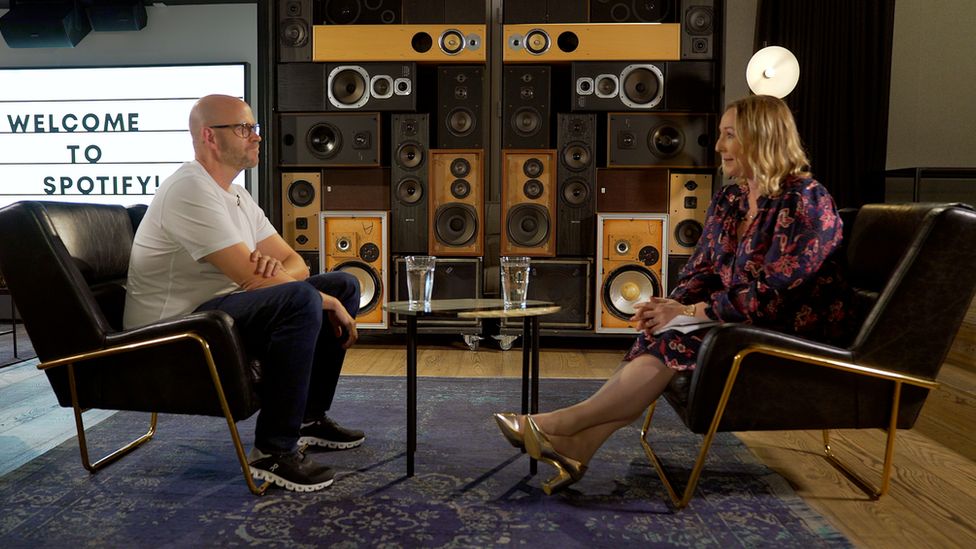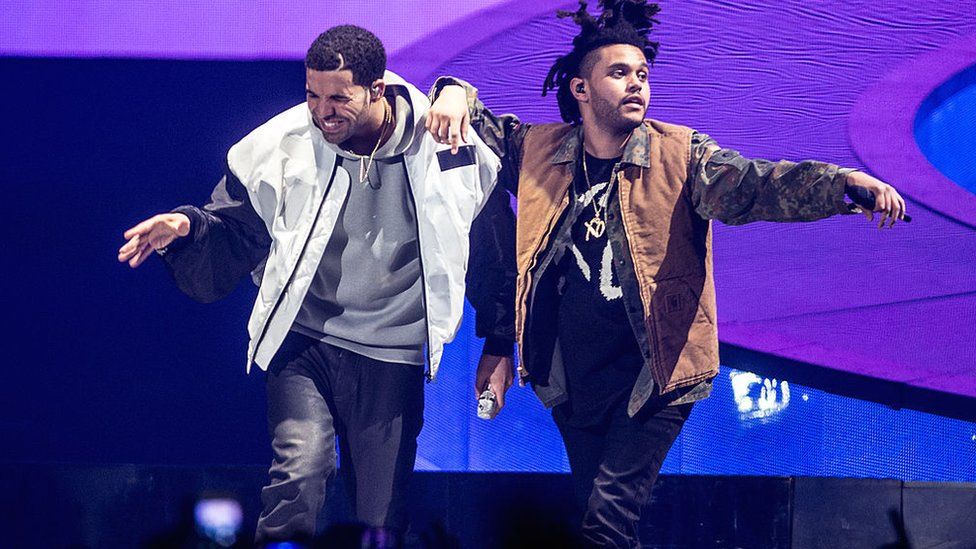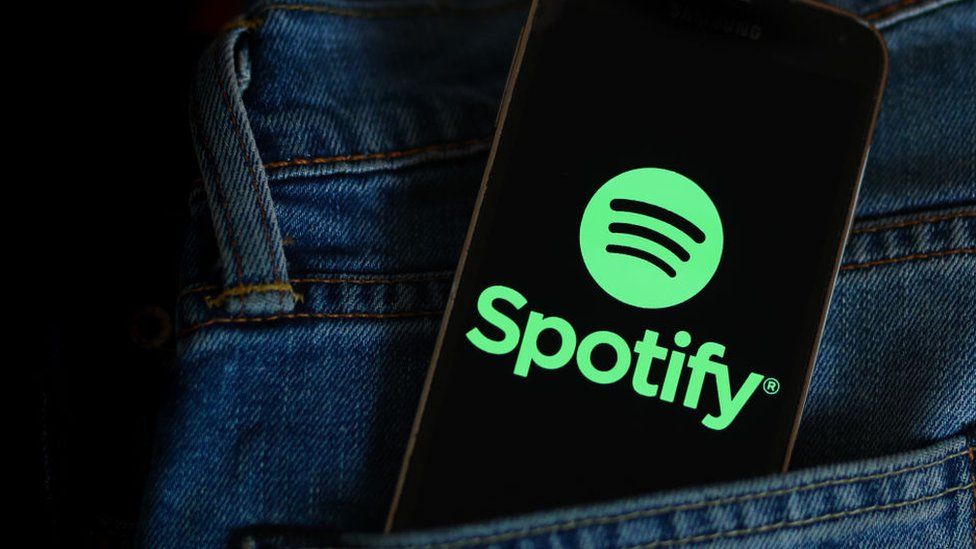The CEO of Spotify has stated that the platform will not prohibit music created by artificial intelligence.

The CEO of Spotify has no intention of fully prohibiting content produced by artificial intelligence on the music streaming service.
Earlier this year, the platform removed a song that included voices of Drake and The Weeknd created using AI technology.
According to Daniel Ek, there are legitimate applications of this technology in music production. However, it is not acceptable to utilize AI to imitate human artists without their permission.
He stated that the utilization of AI in music would probably be a topic of debate for an extensive period of time.
Mr Ek, who rarely speaks to the media, said that he saw three “buckets” of AI use:
- tools such as auto-tune which improve music, which he believed were acceptable
- tools which mimic artists, which were not
- and a more contentious middle ground where music created by AI was clearly influenced by existing artists but did not directly impersonate them.
When questioned about the difficulties the industry was encountering, he remarked that it would be a challenging task.
While AI is not banned in all forms on the platform the company does not allow its content to be used to train a machine learning or AI model, the likes of which can then produce music.
Artists are increasingly speaking out against the use of AI in the creative industries.
Hozier, the Irish musician, expressed his willingness to go on strike due to the potential impact of AI on his profession.
He expressed uncertainty on whether the technology can be considered as art during his interview with BBC Newsnight.
Drake and The Weeknd had no knowledge of their voices being cloned for the song, Heart on My Sleeve. The track was taken down from Spotify and other streaming platforms in April.

Ghostwriter, the individual who created it, made an attempt to secure a Grammy nomination for the track, but unfortunately, it was rejected.
Mr. Ek stated that there have been various instances on Spotify where individuals have attempted to manipulate the system by uploading songs under false identities, such as claiming to be Madonna. We have encountered a wide range of such occurrences throughout Spotify’s history.
“We have a very large team that is working on exactly these types of issues.”
The Financial Times reported in May that Spotify had removed numerous tracks due to the detection of bots that were artificially boosting their streaming numbers.
Mr. Ek also mentioned the significant amount of money invested by the platform in podcasts, which includes shows featuring well-known individuals such as Michelle and Barack Obama, as well as the Duke and Duchess of Sussex. However, none of these shows have been renewed for another season.
The deal with Harry and Meghan cost a reported $25m (£18m) and saw just 12 episodes delivered over two and a half years. A Spotify executive recently reportedly spoke disparagingly about the pair’s work ethic.
“I cannot reword”
“Spotify had no presence in the podcasting industry five years ago.”
Separately, the firm confirmed that Russell Brand’s podcast would remain on Spotify unless the material itself was found to have breached its own terms and conditions.
Acast, which owns the podcast, said it had suspended advertising revenue from it as the comedian remains under investigation over allegations of sexual assault.
Daniel Ek, who is based in Sweden, visited the UK with the purpose of engaging in discussions about regulation. He expressed the company’s endorsement of the forthcoming Online Safety Bill, intended to enhance the safety of children on the internet. Additionally, he showed support for the ongoing Digital Markets Bill, which aims to promote competition by closely examining the actions of major tech companies.
Mr. Ek has consistently expressed his disapproval of the policies implemented by Apple and Google’s app stores, which Spotify heavily depends on. These companies impose a 15% fee on in-app purchases for smaller developers, but the percentage increases to 30% for developers generating over $1 million in revenue.
Spotify has also expressed dissatisfaction with Apple’s hindrance in establishing direct communication with its customers and promoting its services through other channels.
Mr. Ek stated that we are currently facing a scenario where only two companies have the power to determine how more than four billion individuals can connect to the internet.
“If we consider a company such as Spotify, where we currently allocate nearly 70% of our earnings towards supporting the creative community, removing the remaining 30% from our share would essentially result in zero profit. This would ultimately force us to shut down our operations.”
In April, Apple was accused by the European Commission (EC) of violating EU competition regulations, based on a complaint filed by Spotify in 2020. In February, the EC reduced its objections against Apple, but a final decision is still pending.
Apple stated that it is still collaborating with the EC. Additionally, Apple mentioned that most European developers, who earn less than $1m in revenue, are eligible to pay a commission rate of 15% to Apple.
Related Topics
- Spotify
- Streaming
- Apple
-
Spotify denies 30-second trick could make you rich
-
11 September
![Stock image of woman listening to music.]()
-
-
Millions of Spotify users will experience an increase in their subscription fees.
-
25 July
![A man listens to music using his mobile phone]()
-
-
Spotify reduces workforce in its most recent wave of technology-related layoffs.
-
23 January
![Spotify logo on a phone in a pocket]()
-




